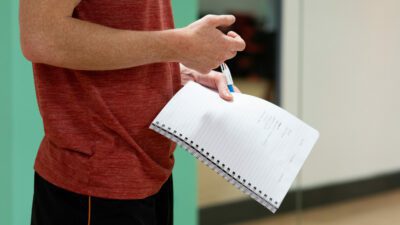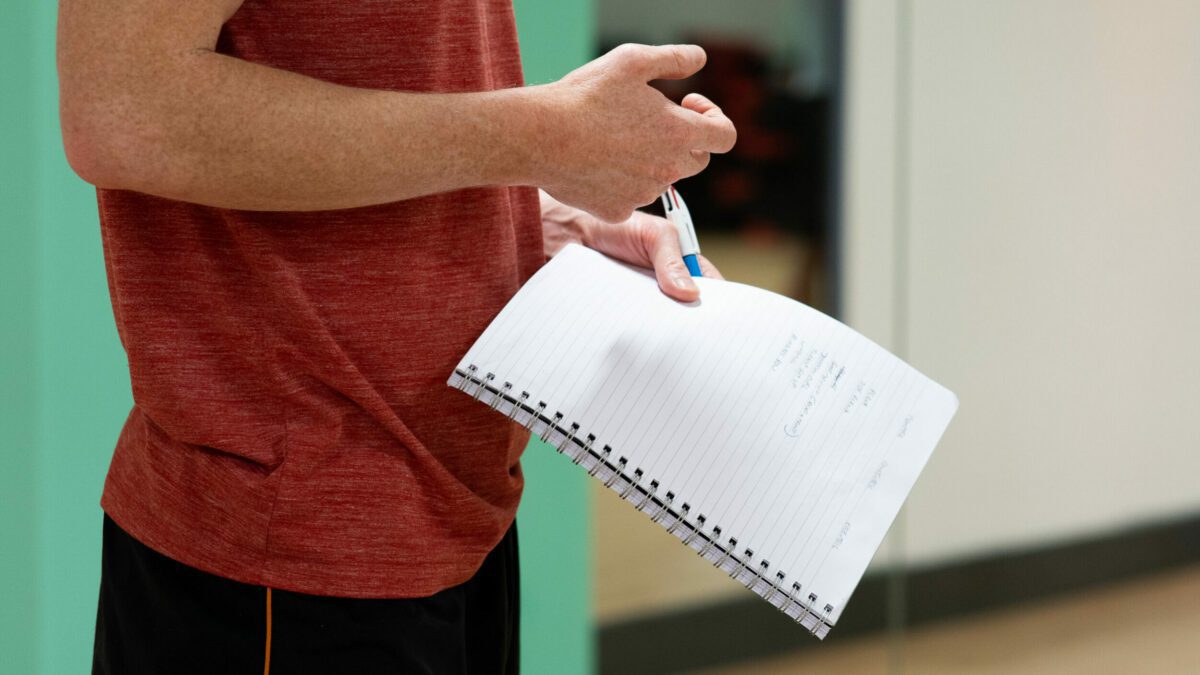



Hopefully your CV has done its job and you’ve been called for an interview. So what can you do to prepare for it? Follow our guide below to ace your interview…
Common Mistakes for Personal Trainer CV’S
Interviews usually involve a practical so that recruiters can test your PT skills. Too often recruiters are disappointed by applicants failure to demonstrate the fundamental personal training skills of listening, coaching, correcting technique, progressing and regressing exercises, building rapport with clients and professionalism. They don’t want to see you simply demonstrating how good you are at doing exercises and shouting encouragement. They want to see engagement and communication skills in action. They want to see your passion and enthusiasm transfer to your client and those around you. Clients won’t book repeat sessions, reach their goals or value your services (or the gym operator’s) if you aren’t able to do this – and you won’t secure the PT position.
Take time to think about what you’re going to wear. Will you be required to show somebody around the gym or teach a class? If so, you’ll need to bring suitable clothing with you. Make sure your clothes are clean and ironed and give the right impression. Look at yourself in the mirror and ask yourself, would you give this person a job?
If you’re going to bring any certificates or other documents with you, ensure these are well presented. Invest in a document wallet to keep everything together. This will present a professional image and show the interviewer how organised you are with paperwork.
It’s important that you find out as much as you can about the company in advance, as you can use this information during the interview. Most companies have a website so make sure you take a look at it. Do you know anyone else who works at that particular club? Does the company own any other clubs? What facilities do they offer? It’s also a good idea to ask for a job description to be sent to you prior to the interview. If you read this carefully you will not only have a better idea of what is expected from you, but you should also be able to get an idea of the questions they may ask you.
Think about how you would answer these questions:
When answering a question, ensure you take time to digest what has been asked. Don’t say the first thing that comes into your head! If you have misunderstood the question, ask the interviewer to repeat it. Maintain eye contact, speak clearly and slower than you would normally. A lot of people speak at a faster rate than usual in stressful situations.
Interviews are not designed to be one-way. They are two-way exchanges of information, so make sure you ask the interviewer everything you want to know about the job.
Don’t leave it until the day of the interview to find out where you’re going. If you’re unsure, ask for a map and directions and do a dummy run. It’s important that you’re not late and you arrive in time to gather your thoughts and calm down before the interview. Arriving an hour late shouting “Sorry, I lost my car keys” will not get you off to the best start.
Your body language says a lot about you and is one of the first things that your interviewer will notice. You need to come across as a positive and capable person. It’s important to remember the basic do’s and don’ts to ensure your interview goes the way you want it to.
Remember, you never get a second chance to make a first impression, so turn that phone off, take out the chewing gum, go in there and show them why their company needs you!
Good luck!